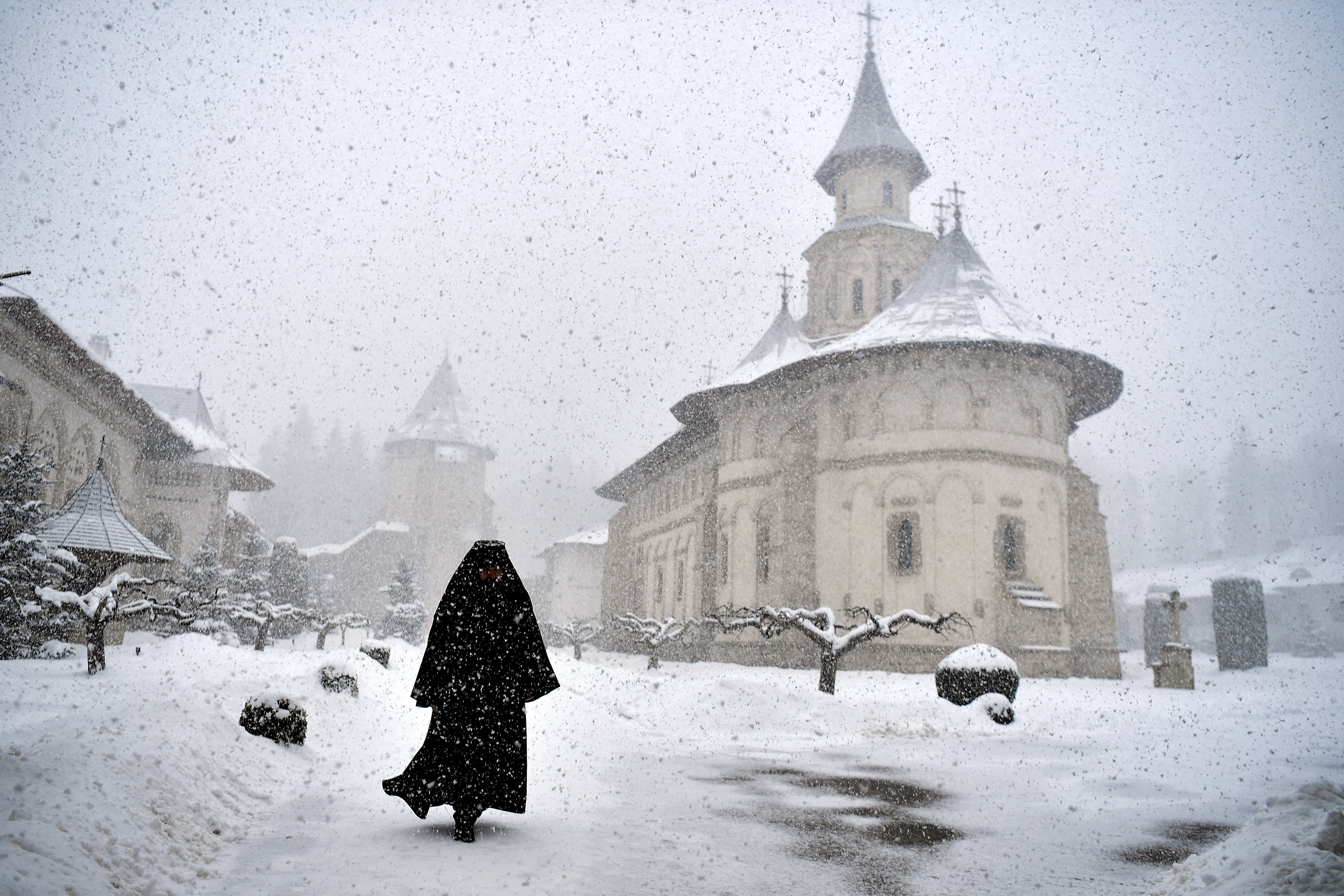Orthodox monks welcome Ukrainian refugees to medieval monastery
The 15th-century Romanian monastery has opened its doors to families fleeing the war

When Svetlana and her family from the city of Kryvyi Rih in central Ukraine reached the snow-covered Putna monastery in the rolling hills of northeastern Romania, they had been on the road for four days.
The monks living at the remote 15th-century Romanian Orthodox monastery, a pilgrimage site that sits in a valley covered in dense forest, have opened its doors to people like Svetlana who have fled Ukraine to neighbouring countries in their millions since Russia began its invasion on 24 February.
Svetlana left her home city with her daughter Anna, six-year-old grandson Maksim and two other female relatives. Anna’s husband and her two siblings stayed behind, helping with humanitarian aid.
“We would go home in a second, our souls are so heavy,” Svetlana said. “We are sorry we had to separate from our family. Right now we feel fear and confusion, we don’t know what to do next.”
As she wept, Father Gherasim Soca quietly embraced and comforted her. Later that day, villagers braved a snow storm to attend a service at which monks prayed for the people of Ukraine inside the large stone church with shimmering icons.
“The majority of people want to reach their final destination, usually somewhere in the west, as soon as possible, and if they can, they choose to spend the night near the border towns,” said Father Gherasim.
“Putna is a little more remote, but for those who are not in a rush, they are not crowded here, each family have their own room. I see them go to church and praying, getting comfort. It helps a lot.”
More than 412,000 Ukrainians have fled to Romania, where thousands of volunteers, churches, non-governmental organisations and government agencies are providing food, shelter, clothes and transportation.
In northeast Romania, the Suceava and Radauti Orthodox archdiocese has offered hundreds of beds in monasteries as well as parish houses. They also have a permanent presence at the Siret border and adjacent train station including priests and monks who speak Ukrainian or Russian, offering food and help.
“A large part of Ukrainians are going to relatives who work abroad,” said Father Alexandru Flavian Sava, the archdiocese’s spokesman. “To them, it is more comforting to move on than stop so close to the border and the violence beyond.”
Father Gherasim said roughly 100 people, mostly women and children, have so far taken shelter at Putna.
Among them was a couple who came with their baby from Ivano-Frankivsk. The father used his dual Romanian passport to leave, as Ukrainian men of conscription age are not allowed to.
“We have a little girl. We left because we are afraid for us and her,” said the father, who wished to remain anonymous. He said they came to stay at Putna before continuing further west because they had visited before.
“We’re afraid because we don’t know how it will end.”
Photography by Clodagh Kilcoyne, Reuters
Subscribe to Independent Premium to bookmark this article
Want to bookmark your favourite articles and stories to read or reference later? Start your Independent Premium subscription today.

Join our commenting forum
Join thought-provoking conversations, follow other Independent readers and see their replies